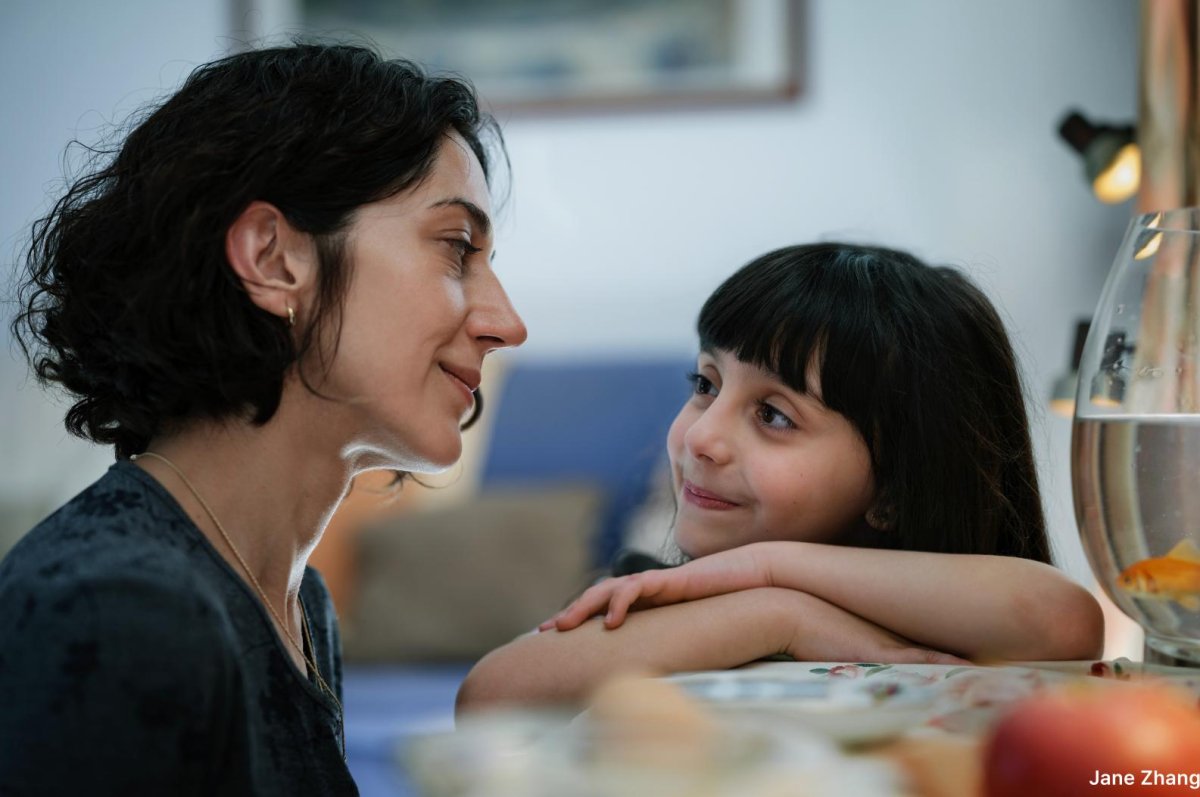1 of 3 | Shayda (Zar Amir Ebrahimi) and her daughter, Mona (Selina Zahednia), are fleeing domestic violence in “Shayda,” the debut feature by Iranian-Australian director Noora Niasari. Photo courtesy of Busan International Film Festival
BUSAN, South Korea, Oct. 13 (UPI) — Noora Niasari’s debut feature, Shayda, gives a powerful account of the director’s own childhood experience of escaping domestic violence with her mother in a foreign country.
Showcased at the Busan International Film Festival, the film achieved critical acclaim at its Sundance premiere and has since captivated audiences at other festivals such as Locarno and Melbourne.
While Shayda takes place within the Iranian diasporic community in Australia, its universal themes have struck a chord with viewers worldwide, as revealed by director Noora Niasari in an interview with UPI at Busan.
“It wasn’t my intention to make a film only for Australians,” Niasari explained. “The most rewarding aspect for me has been sharing this film with audiences around the globe and witnessing their deep connection to it in various contexts.”
The film revolves around Shayda (Zar Amir Ebrahimi), an Iranian woman residing in Australia, who seeks refuge in a women’s shelter along with her six-year-old daughter, Mona (Selina Zahednia), as they try to escape Shayda’s abusive husband, Hossein (Osamah Sami), a medical student with plans to return to Iran after completing his studies.
Niasari herself spent eight months in a shelter with her mother in 1995, and the movie offers an “emotionally autobiographical” portrayal of their experience. The director approached her mother six years ago and requested her to record her accounts in a memoir.
Niasari acknowledges that her own memories of that time are “quite fragmented,” evoking a mix of confusion, fear, and sporadic happiness.
“It was an incredibly stressful period, but being embraced by social workers and other women and children was beautiful,” Niasari shared. “It was the first time we felt truly safe and supported by a community.”
Zar Amir Ebrahimi delivers an enthralling performance as Shayda, finding moments of joy and resilience in the midst of displacement, whether it’s bonding with other mothers at the shelter or giving herself a haircut with a pair of kitchen scissors.
“My aim was to strike a balance between light and dark, as I didn’t want the film to solely focus on victimhood,” Niasari stated. “Even during the darkest times, there are moments of happiness that are essential for survival.”
The film is set during the lead-up to Norwuz, the Persian New Year, which Shayda is determined to celebrate with Mona despite the increasing danger of her estranged husband’s presence in the diasporic community. (This celebration of springtime renewal contrasts with the arrival of fall in the Southern Hemisphere of Australia.)
“The film centers around Shayda reclaiming her cultural identity,” explained Niasari. “She finds empowerment in celebrating Persian New Year and passing on these traditions to her daughter. It’s an act of defiance in itself, embracing the beauty and light that empowers her.”
While Shayda offers sparks of hope, it also maintains a suspenseful tone akin to a thriller. Every time Shayda lets her guard down, a sense of dread builds as audiences anxiously await the appearance of Hossein, whom they don’t meet for a long time. The film even raises questions about Shayda’s choices.
“For women who have escaped, life moves on but there is always an underlying fear,” Niasari noted. “And society often dismisses their fears as paranoia or something that’s all in their heads. I wanted to place the audience in that position of uncertainty as well.”
The film received early support from two-time Academy Award winner Cate Blanchett, who served as executive producer through her company Dirty Films.
Niasari expressed gratitude for her partnership with Blanchett, which has significantly raised the film’s global profile. Released in theaters earlier this month, Shayda is Australia’s official entry in the Best International Feature Film category at the Oscars.
Wherever it has been shown, from Sundance to South Korea, Shayda has resonated deeply with viewers, prompting many to approach Niasari and share their personal experiences of domestic violence.
“I wanted to create something from a female perspective, incorporating all the layers and sensitivities that come with it — something that instills hope and empowers women,” Niasari revealed. “I never expected it would have such a profound impact on audiences.”



